Singer-songwriter Taali comes from a long line of very proud, progressive, Jewish humans. Her car is named after Iris Apfel, her Judaism is very musical, everything changed when she moved to LA, and her favorite thing on earth is connecting with other people.
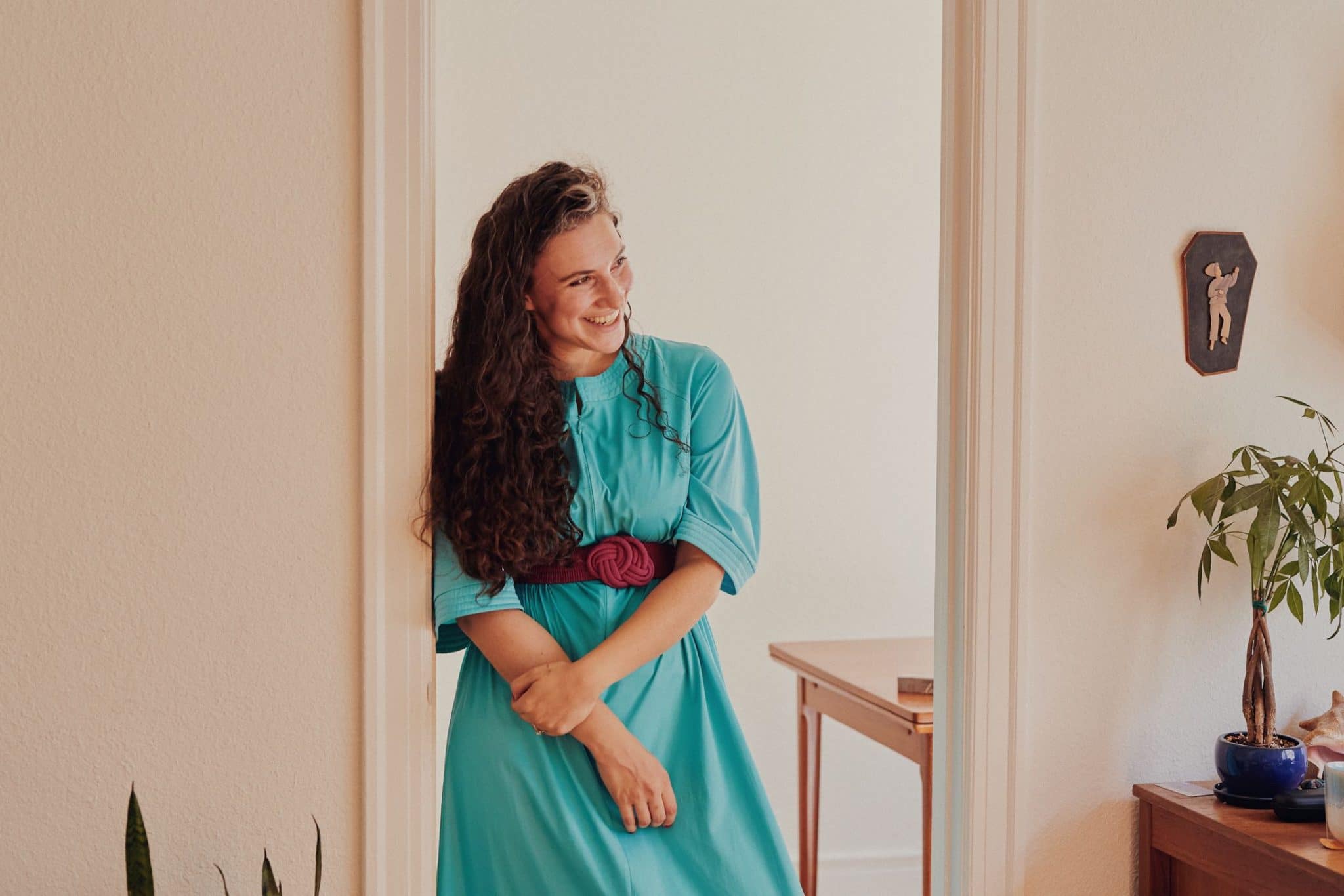
What is the story behind your name?
My name is Talia Pnina Billig. My parents wanted to name me Natalia, then they learned that means “Daughter of Nativity.” They shortened it and named me Talia.
My middle name, Pnina, is my father’s grandmother. She was a badass, socialist Berliner in the World War I era. Her sister married my great-grandfather in Berlin, then her sister died in a car crash. The rule was, he got the next daughter. So, she married this man. In the ’30s, he saw a man get dragged by his beard down the street in Berlin and said, “That’s it. We’re going to Palestine.”
Billig is my last name. It means “cheap” in German.
Where and who do you come from?
I was born at Mount Sinai Hospital in Manhattan, New York City. We moved up to a town called Hastings-on-Hudson when I was five, but my dad still very much kept his Washington Heights sensibilities.
My dad’s mother is very Israeli and still speaks with a heavy accent. We learned Hebrew fluently. There was a whole bunch of singing all the time.
We grew up with all of the beautiful, mournful Jewish melodies.
In Israel, there was this huge wave of Mizrahi immigrants that came in and really shaped the harmony of that country. My grandmother put that very much into our family ethos, and we grew up with that in our blood.
I come from a long line of very proud, progressive, Jewish humans.
My dad made sure to raise us on all of these amazing, progressive, Jewish ideals; from really religious figures like Heschel, all the way over to Clara Lemlich, who organized the Triangle Shirtwaist factory protests and spearheaded the labor movement; or Emma Goldman, who’s this incredible anarchist, bad bitch. And Bella Abzug or even Iris Apfel, who my car is named after, and my shower curtain has her face on it. My dad wanted me to grow up knowing that our culture was progressive, and that its nature, culturally or religiously, was intended to help other human beings.
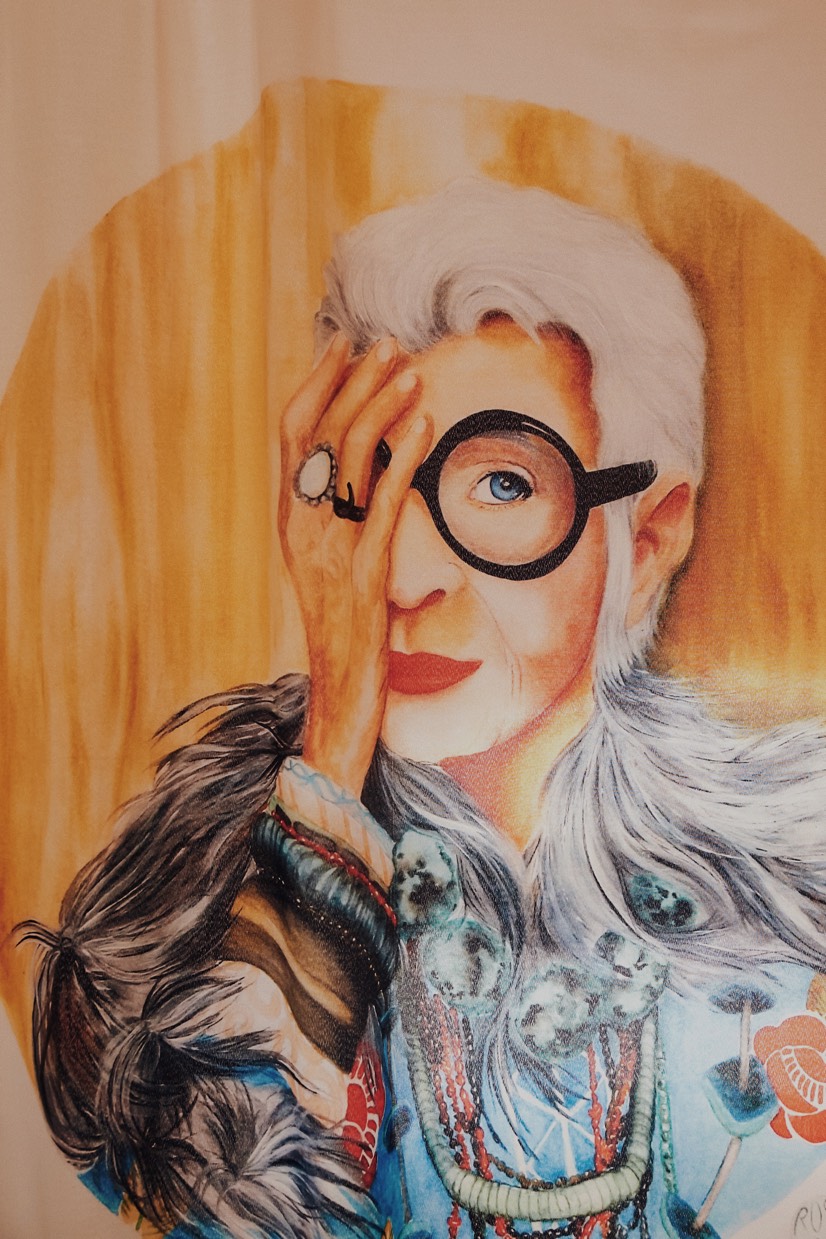
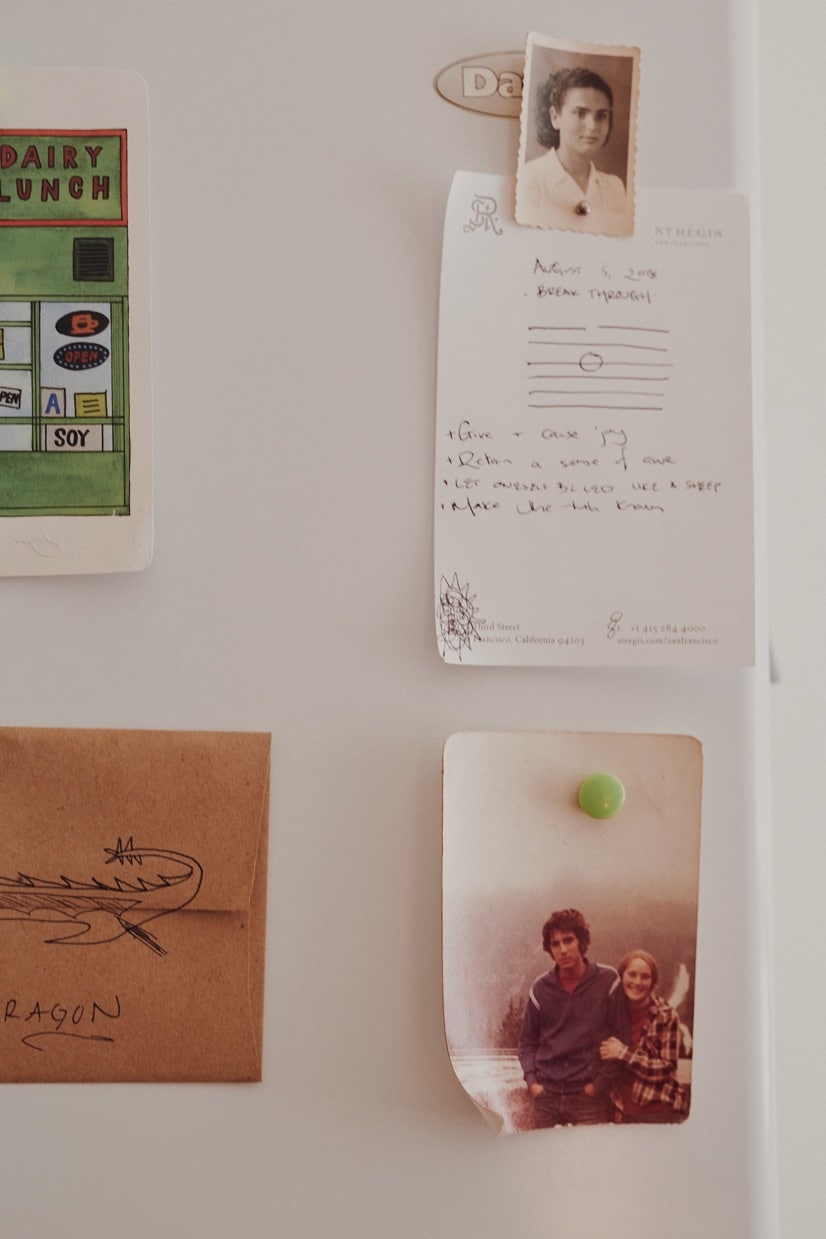
How did Judaism play a role in your upbringing?
I grew up with two very proud, very different, Jewish parents. My mom is white-passing; she’s blonde, blue-eyed, and Lithuanian. Her family came here 150 years ago, which is unusual for Jews. They’re very assimilated into American culture. On my dad’s side, we have these immigrants who are dark. They’re brown. On that side, the Judaism is much more a part of their identity, because they were so different. They had heavy accents. They came from Israel, it was very clear.
I don’t think my parents were that religious, but when they had kids, they decided (and I’m thankful they did) that they were going to raise us knowing who we were and where we came from. We had Shabbat every week. We sang every week. We had holidays with our entire family.
My Judaism is very musical.
My family sings all the time. At every gathering with the family, my dad prints these songbooks and we all sing. When I was a kid, I thought it was so cheesy. Now, it’s like the biggest gift I’ve ever gotten. I knew that I had this identity. I didn’t feel any resentment toward it.
Growing up, I loved my Judaism. That changed when I left my home.
Growing up, we were in a Zionist youth movement called Young Judaea, which I loved. But, something started to shift as Israel started to shift. I began to see that the very optimistic, socialist labor Zionist ideals I grew up with were nowhere near what was happening in that country. My Israeli family was protesting all the time, which I’m pretty proud of now.
When I was going to jazz school in the Village, the Jewish community that I found there was largely white-passing and aggressively racist. We’d have many discussions about this in my home – my dad is so happy to speak on and to educate about Palestinian personhood and statehood – but it wasn’t happening any time I tried to have a discussion about this outside of my home in the Jewish community that I was finding.
I wish I could tell 18-year-old Talia, “When that happens, you can seek other communities.” I didn’t know that at the time. So, I put both hands up and just said, “Don’t associate me with this. I can’t.”
Then, I moved to LA.
In New York, I feel like your Judaism is assumed.
It’s just like, “Yeah, bagels, Jews, New York.” When I came to LA, I barely knew any Jewish people.
I started to miss Jewish community and culture.
I started to seek it out, and I knew that if I was going to be coming back to a Jewish community, it had to be one that lined up with my values, especially now that I have a black partner. I didn’t feel comfortable bringing him into many of the communities with whom I had been associated in the past.
I looked very carefully. Beautifully, my favorite people from that Zionist youth movement have now gone into incredible, progressive work that is so impressive. They started to educate me. People like Sandy Fox, who runs a Yiddish, feminist podcast. I started to read my friend Harry Reis‘s work. Then, I met Ari Herstand through the music world and told him, “You know, I’m really struggling.” He said, “I have the best Jewish community, and you should come. You would love it. Our rabbi is amazing, a woman rabbi.”
I went to Nefesh, and I sobbed through my first service.
There were so many Jews of color. There was all the music that I grew up with, but also guitars and a drummer. I feel a sad part of the Conservative movement that we adhere to, that I grew up with, is that we don’t have instruments. At Nefesh, it’s different and it’s a little woo-woo, but also it just spoke to my soul. Particularly Rabbi Susan, who’s the very embodiment of what my dad tried to teach me in a human being, is brilliant and nuanced and inspiring and progressive.
Everything changed.
In my album, Nefesh is thanked because they allowed me to fall in love with my Judaism again and recognize how huge a part of my identity it was.
From there, I started to really dive in. On Instagram, I found all these incredible groups, like Jewish Voice for Peace and Jews For Racial and Economic Justice and IfNotNow. All these people who were speaking on the breadth of a Jewish identity and experience. That brought me into 2018, to be proud in where my Jewish identity is.
My most recent album is called “I Am Here,” because “Hineni” would’ve been too on the nose. I’m super proud of it. It’s Jewish; it opens with the healing prayer, but it’s still a pop album. It has New York songwriter harmonic sensibilities, LA sounds, and Jewish harmony. I love the idea that this music is for everyone but is fundamentally rooted in my identity, which is Jewish.
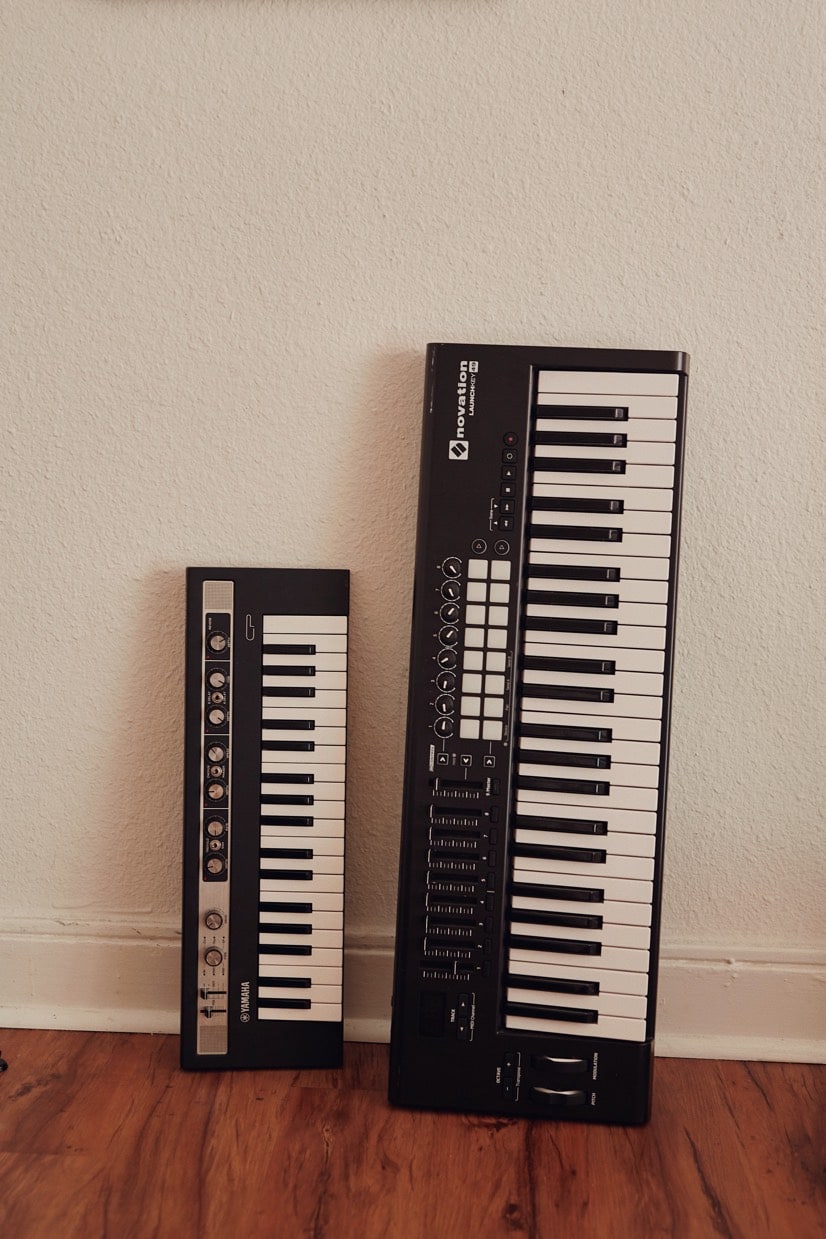
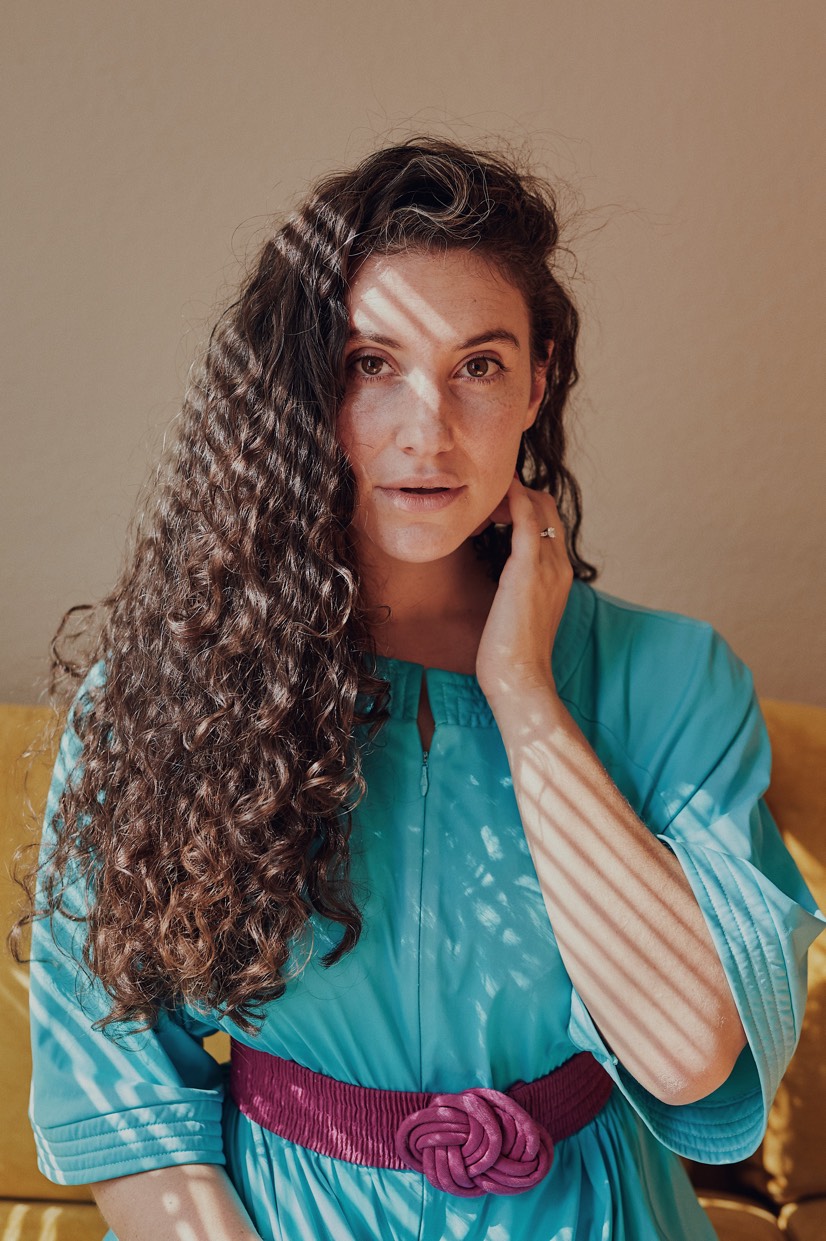
What does being Jewish mean to you today?
It means you’re constantly questioning and constantly searching.
I also really relate and feel akin to the wandering Jew trope. I am one. I love this idea of a global, moving Jewish community that’s different in all places but united. I love the fact that we’re in Ethiopia, and India, and the Philippines. I’ve been to a synagogue in Curaçao, which is amazing. They have sand on the ground.
Culturally, I relate very strongly to the part of us that feels the need and is literally instructed to do better, to make the world better, to look around and say, “That’s not right. What can we do to fix it?”
I have chicken stock in my freezer at all times.
My music is almost entirely minor. It’s heavily, what I call choir-based, which, to me, feels like my family. You can hear it on the intro of “Hear You Now,” interweaving voices, as if it were a family of me’s. It feels like bringing my family into these songs.
What is an insecurity or fear that you have?
I’m working on finding the balance between entitlement, which I think is a defect, and asking for what I want, which is an asset. As a woman in this country and world, it’s very hard to know when that’s the special sauce, when it’s right. I have to watch out, because I often feel threatened and like I’m not being listened to and like I need to really kick and scream to get something. Sometimes, that can be the wrong instinct. I’m trying to find where the balance is between asking for too much and asking for what I deserve.
When do you feel like the best version of yourself?
When I’m writing songs, I feel all of the best parts of that Jewish identity we were talking about. I’m searching, and seeking, and not being satisfied with the first thing. Finding the best, but also the simplest, way to say something.
When I’m playing live, I feel the most spiritual, because everything I do is in service of connection.
My favorite thing on Earth is connecting with human beings.
When you’re playing live, you have the opportunity to bring someone into your living room, whether it’s 50 people or 3,000 people. I grew up with connection, and I crave it. That’s when I’m in my highest place.
Do you have a personal mantra?
I try to remind myself that we all have something to give.
Music can be perceived as this selfish, promotional business. You can lose sight of the fact that music is amazing, that you love it, that you got into it when you were eight because a teacher inspired you, and you felt something. I constantly try to remind myself that music is communal. If I’m promoting it, it has to be in the service of community.
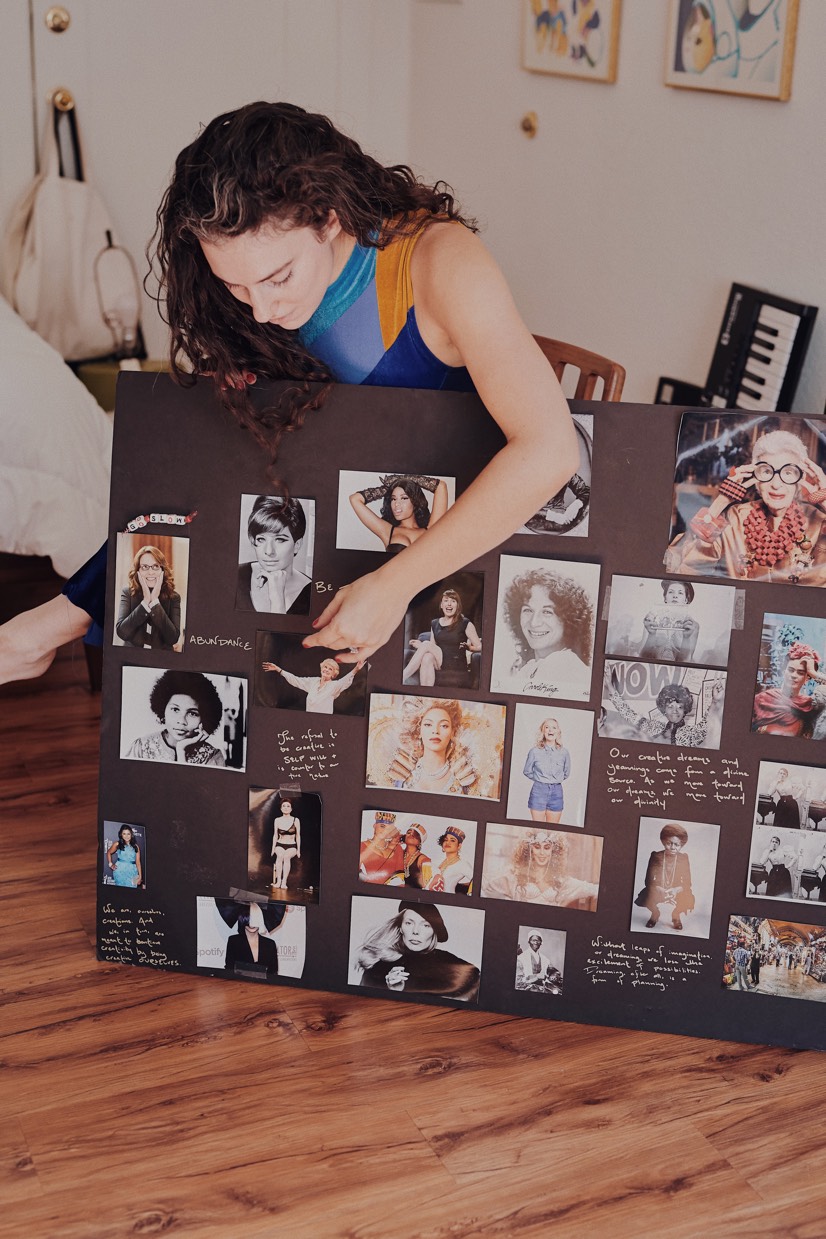
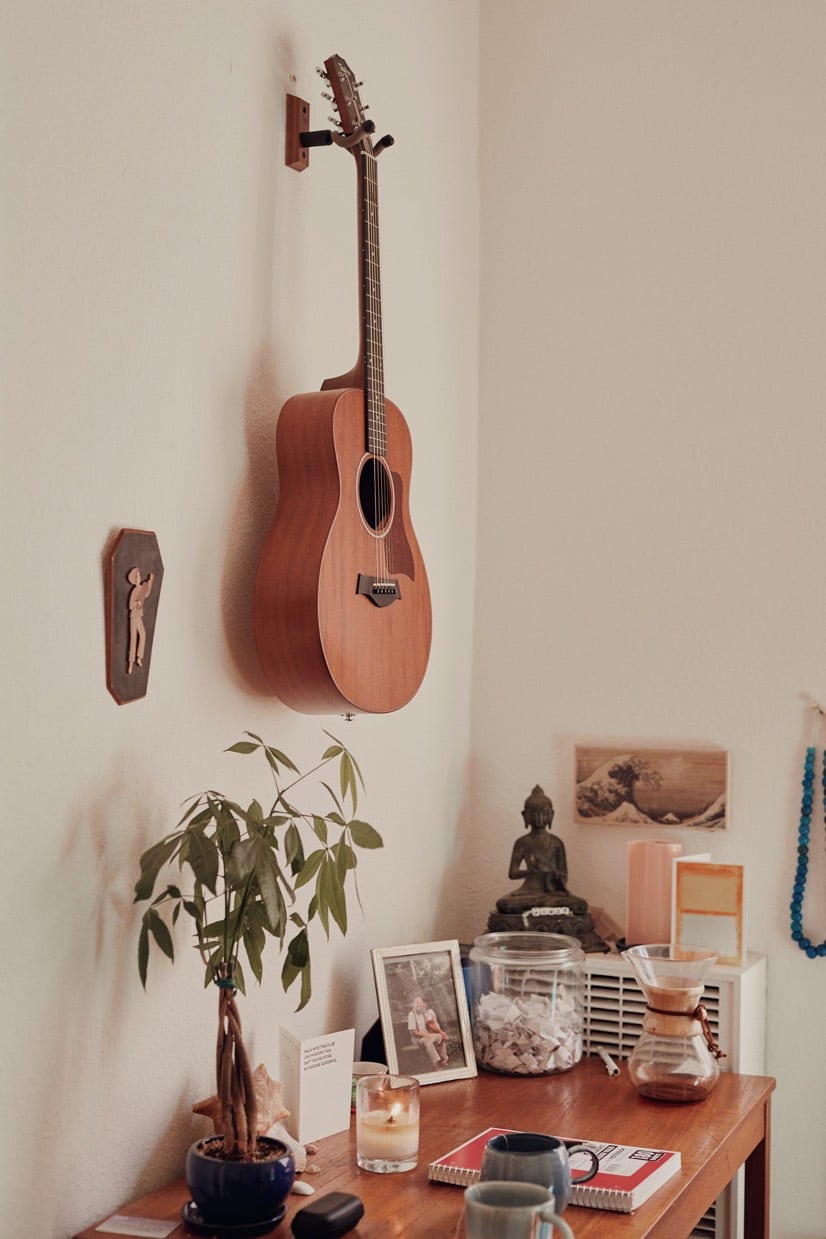
What are you working on now?
Rainbow Blonde is the label that my partner and I founded together, along with Brian Bender who’s the studio part of it. We founded it with the idea of being an artist-funded, artist-founded, artist-celebrating, artist-run collective. It’s for artists, by artists. From our pretty uniquely enormous acumen of music business, we’ve watched what works and what we think doesn’t work, and created a label out of it.
The best thing my dad ever taught me was that artists need communities.
Rainbow Blonde tries to honor that. We call it an inside-out label. We have a collective page on the website that celebrates the people who are making the videos, the business managers, the people who are creating the artwork, and the photographers. I wanted to have a space where we celebrate it all, with the videographers there next to the singers.
What do you do to celebrate your successes?
One of the things that I learned this year is how important self-care is.
The business will tear you down, and if you don’t celebrate, you will burn out so fast, because it’s exhausting. We run our own label so we’re literally doing everything. 90% of it is business, which is not what you signed up for. That 5% to 10%, you have to just relish. I try my very hardest to do that.
The day after a success, there’s often what feels like a depression, almost like a postpartum.
On that day, I try to do a conditioning treatment for my hair or meditate an extra 20 minutes or get my nails done or go for a long walk. I usually like to cook a nice meal. I light a candle and eat my home-cooked meal with joy. The self-care is what keeps you going. They’re the little power bars along the way so you don’t faint on the mountain.
Photos by Marissa Alves. Transcribed by Maya Sungold.
Thank you for visiting Arq!
Arq is no longer publishing new content. We hope you'll enjoy our archived posts.